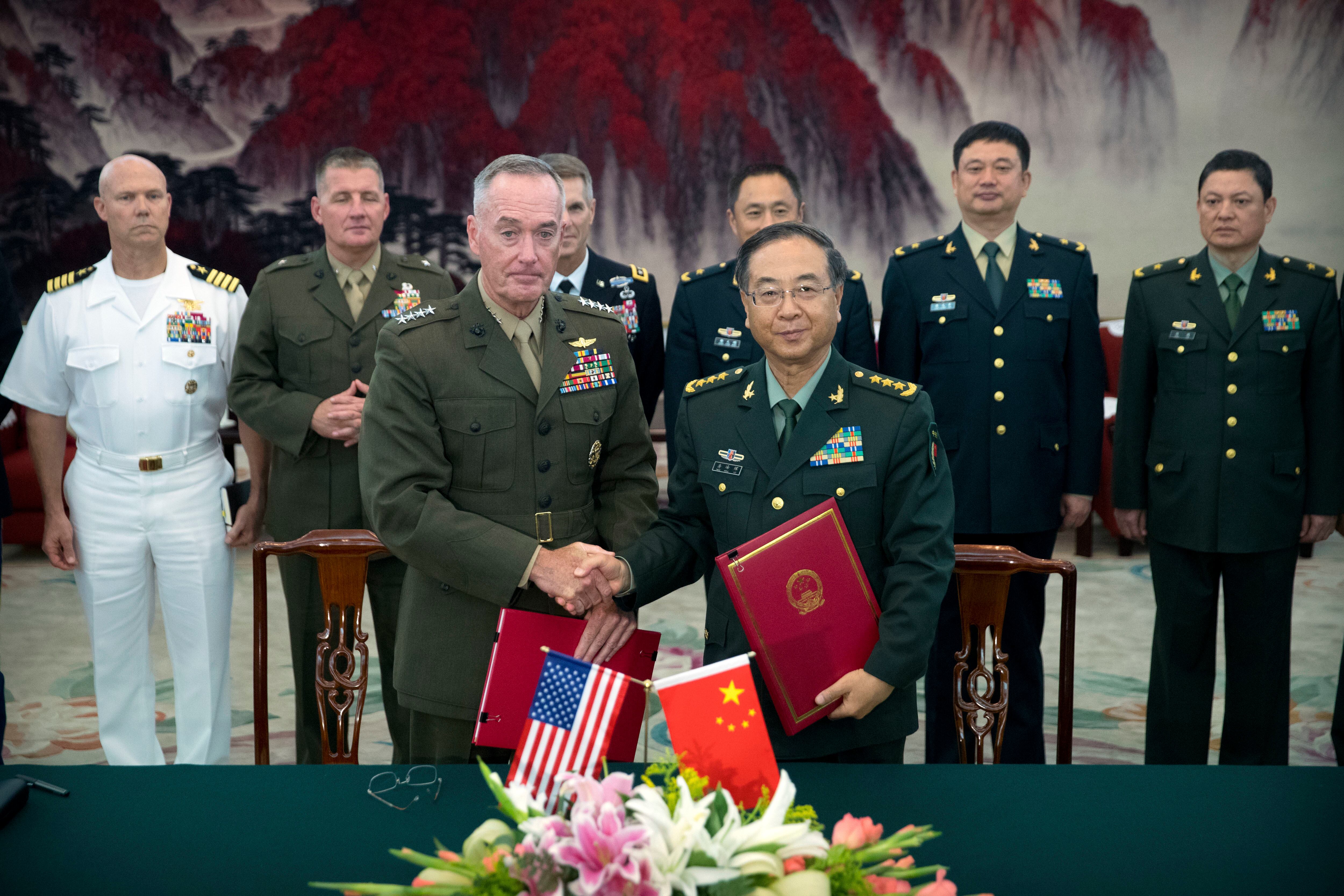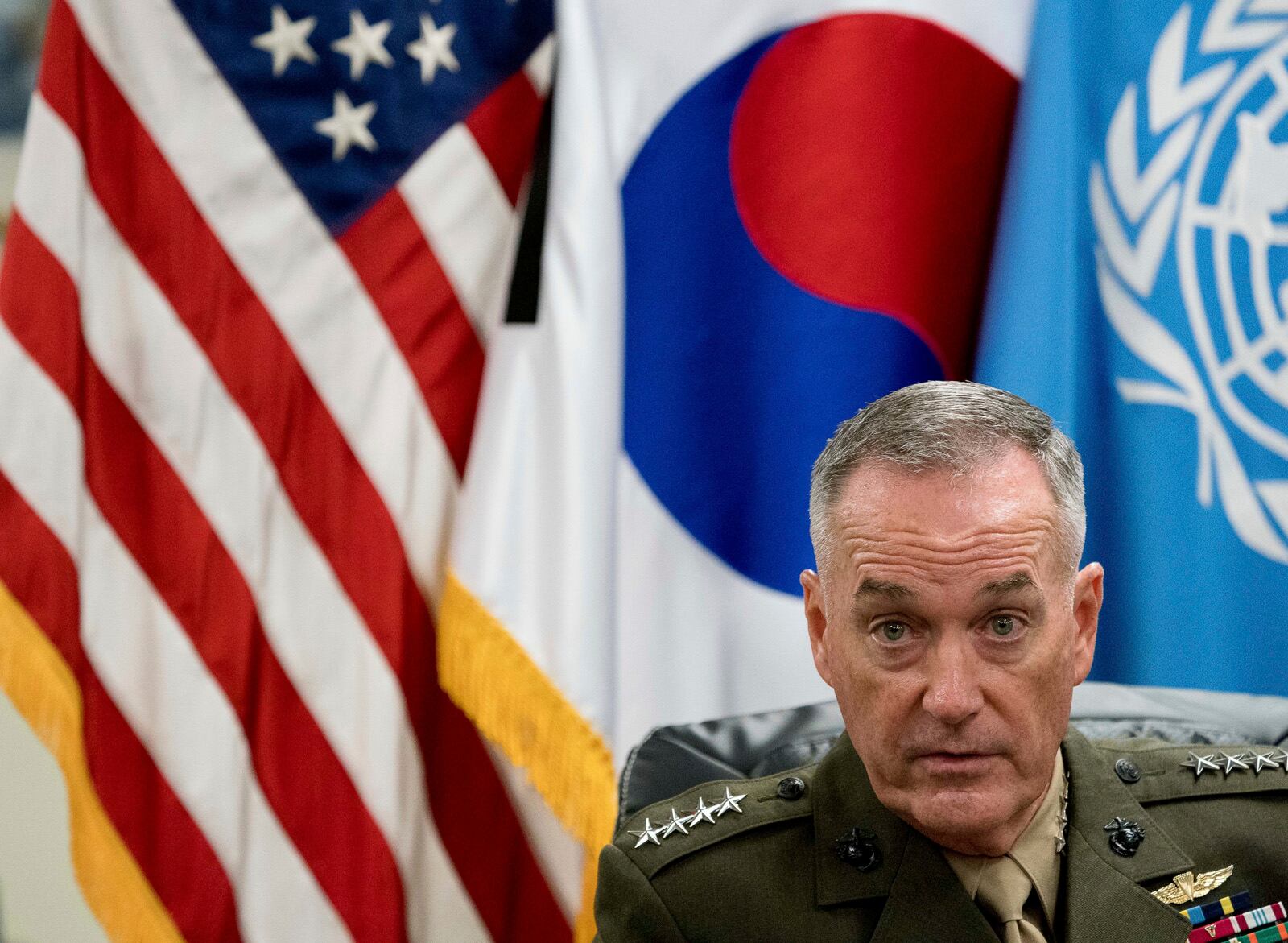BEIJING — The top U.S. military officer told his Chinese counterpart Tuesday that the U.S. and China have “many difficult issues” to work through, during a visit that comes amid tensions over North Korea’s missile program, Taiwan and China’s claims in the South China Sea.
Marine Corps Gen. Joseph Dunford, the chairman of the Joint Chiefs of Staff, made the remarks at the opening of a meeting with Fang Fenghui, chief of the People’s Liberation Army’s joint staff department.
U.S. officials say Dunford’s visit aims to create a mechanism for improving communication between the sides, especially on sensitive issues such as North Korea. Dunford and Fang signed an agreement committing the sides to that goal, with the details to be discussed during talks in Washington in November.
Fang said Dunford’s visit was a key part of efforts to expand dialogue between the U.S. and China as agreed by President Donald Trump and his Chinese counterpart, Xi Jinping, when they met earlier this year.
To that end, China has arranged a series of important meetings and visits to help Dunford “know more about our military, (boost) our cooperation and build up our friendship,” Fang said.
Dunford responded that the U.S. considered the meetings important to making progress on areas of disagreement, without citing any specific examples.
“I think here, we have to be honest — we have many, many difficult issues where we don’t necessarily share the same perspective,” Dunford said.
“I know we share one thing: We share a commitment to work through these difficult issues,” he added, saying that with the guidance of political leaders “we are going to make some progress over the next few days.”
This is the highest-level meeting between the two countries’ militaries since Trump and Xi met in Florida in April.

The U.S. delegation will be flying to the northeastern city of Shenyang on Wednesday to observe an exercise staged by the People’s Liberation Army’s Northern Theater Command. Fang cited the event as being among the measures aimed at building mutual trust and understanding.
While the sides agreed several years ago to establish a hotline between the Pentagon and China’s defense ministry, that mechanism has never gone into operation. U.S. officials say they’ve attempted to use it, but that the Chinese side has never answered their requests.
The Chinese and U.S. militaries have joined in naval exercises off the coast of Hawaii and other limited multinational drills mainly aimed at dealing with humanitarian disasters. They’ve also tried to improve mutual trust through agreements on dealing with unexpected encounters at sea.
Despite those, China deeply resents the presence of the U.S. Navy in the South China Sea, which Beijing claims virtually in its entirety.
Last week, China expressed its “strong dissatisfaction” with the U.S. over the Navy’s latest freedom of navigation operation in which a warship sailed past one of China’s man-made islands.
RELATED

Dunford is visiting South Korea, Japan and China after a week in which Trump said he was ready to unleash “fire and fury” if North Korea continued to threaten the U.S.
In a phone call with Trump on Saturday, Chinese President Xi said all sides should avoid rhetoric or action that would worsen tensions on the Korean Peninsula.





